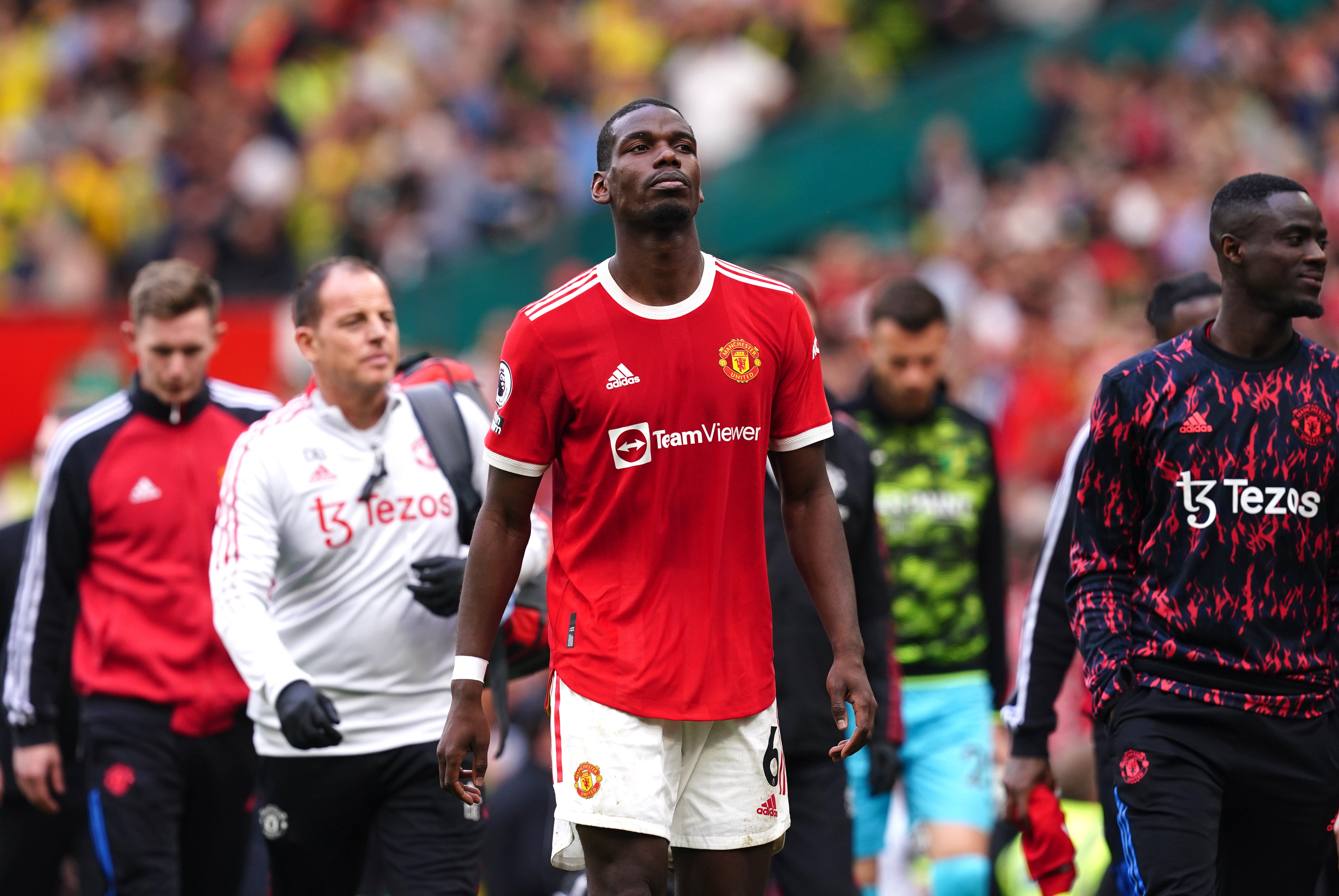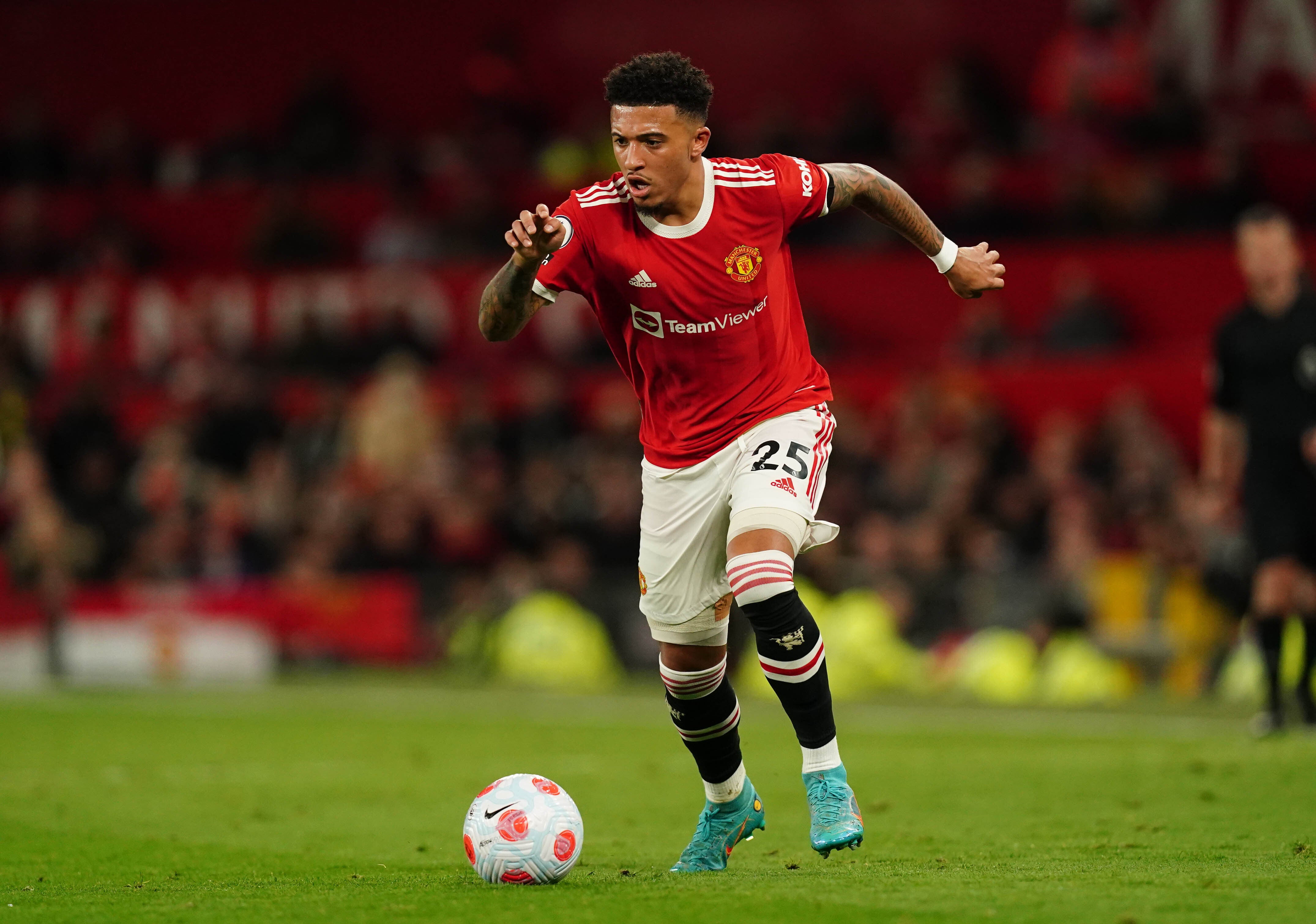
When the Manchester United squad were told of Erik ten Hag’s pending appointment, the response was said to be “mixed”, but one specific response stood out. Some players were totally indifferent, because they don’t want to be around to find out.
It sums up the scale of the challenge. For all of the buzz around Old Trafford after Ten Hag’s announcement, there was also some unease about how long it will take reality to check that excitement.
The current reality is that United have just suffered a 4-0 defeat to Liverpool that was as pitiful as it was predictable, That made it a collective 15-1 in four games against the top two, who also happen to be their two biggest rivals.
The occasion displayed such a disparity between the clubs that the only logical response should be to interrogate what Liverpool have done, and seek to update it. That’s curious, though, because that was the exact question put to former executive vice chairman Ed Woodward in a meeting at United’s London base in 2019. Why not just do what Manchester City and Liverpool do, identify a modern ideology, and go from there?
Woodward responded that United deliberately didn’t have a defined style, because they wanted “a certain flexibility” so managers can work within broader parameters. There is admittedly a counterintuitive business logic to that, but the brutal truth is that it was still going against what is widely seen as best football practice.
It is also what Ralf Rangnick is practically screaming at the club now. He said it again before the Liverpool match and afterwards, while also laying out the guiding principles when asked what United could do to catch up.
“The headline on everything should be ‘how do you want to play’!”, he said.
The situation has been immensely frustrating Rangnick, and has only reasserted how far United are off the level. The last few days have been dominated by discussion about how long it will take them to get back, not least from the interim coach.
That is also why it can – repeat, can – be a source of optimism.
For all the issues at United, they can reach for a clear roadmap. That roadmap can also be followed much more quickly if you can pay the salaries the club are capable of. Such money means United are capable of succeeding even under the Glazers, and the ongoing effects of that lamentable 2005 leveraged buy-out. The £1bn-plus expenditure that has been held up as such a waste is also a clear sign of their potential power. They are arguably the only English club who can truly go toe to toe with City in terms of financial muscle. Imagine that money spent correctly.
This is why Rangnick said “it will take two or three windows if you know what you are looking for”. They should know what to look to. Both Rangnick and even Ten Hag have made some steps clear in meetings.
If you had a truly blank slate, which many would argue this season should bring, you can work down from the top of the club. The repeated line from football people to The Independent has been that, actually, “it’s all about simplicity”. “It’s not rocket science,” as Rangnick himself said.
A club first of all needs a good and experienced chief executive, who brings in an empowered sporting director. The point here is not the obviousness of hiring the best people for the senior positions. It is something that has actually been rather unclear at United: that football people are entrusted to make key decisions under their remit. You then get these same figures to identify and articulate a football ideology, from which everything else follows. This is what Rangnick meant by “the headline on everything”. That ideology should inform every decision, from the choice of coach to all signings. It means there is much less possibility for waste.
The recruitment department should then be constructed to the highest possible standard, and primarily guided by old-fashioned scouting insight and modern data analysis, with both of those overwhelmingly prioritised over agent relationships. Such an approach – which isn't as common as might be expected – would mean the ability to contextualise how well a player will work in your system, which remains the most important factor in signing players. From all that, a sporting director should have final say on all signings within an existing budget. The club should also be ruthless with outgoing players, because of the profound drag effect a disgruntled few can have on the rest of the squad. You couldn’t have a better example of that than at Old Trafford. By contrast, Arsenal, who United play next, have gradually started to realise the benefits of such clear-outs. It has a value way beyond transfer fees.

This is the situation any manager should be walking into. This is something individual managers can also help enforce, if they have requisite charisma and vision. It is what Jurgen Klopp has done at Liverpool, radiating the focus that brought so many different parts of their formative structure together in 2015. Pep Guardiola has probably been on the other side of it, walking into a fully formed club at City, which is what Ten Hag was used to on a lower scale at Ajax.
The big question is whether the Dutch coach can help bring this at United.
Because, as elementary as it all sounds, so much of it has been missing at Old Trafford. And even now, after so many frank meetings with Rangnick, there’s a big difference between knowing the path and following it.
This may be where the Glazer ownership brings a bigger problem than even those huge interest payments. While United still have so much revenue they can overcome the effect of all that cash going out, it’s much more difficult to get around their corporate structure.
Everything has to go through Joel Glazer. “He makes all the big decisions,” is a repeated line, from those who have worked within the club and with it. That process applies to so much, from managerial appointments to business calls.
As a basic example, fitness equipment companies have recently been tendering for the new gym at Carrington. There has been frustration, however, because “everything has to be sent to Florida meaning no one can sign off on anything. Even on something as small as that.”
Figures who have worked with United believe it’s impossible to detach this from the nature of the 2005 buyout, which has ensured everything is a hardline business decision. That might be inevitable. It has just had the adverse effect of ensuring United aren’t as commercially attractive as they could be, because they are not successful.
The process has ultimately meant that football decisions are, at the very least, influenced by people whose main expertise is not football. There have even been murmurs of surveying online reaction. Liverpool’s owners, by contrast, quickly realised the best business practice was to trust the best people.
Whether United have the best people on the football side is another question. There is now significant public pressure on both John Murtough and Darren Fletcher.
So far, they have not blown away peers at rival clubs. That need not necessarily be a mark against their careers, and they could develop into prominent figures in European football. It’s just that’s precisely the problem. A main job at United, as with Ole Gunnar Solskjaer, should not be a finishing school.
Sporting directors at such clubs should have years experience at the top of the game. United simply don’t have such an individual anywhere in their infrastructure.
Paul Mitchell, now of Monaco and formerly of Leipzig and Tottenham Hotspur, has spoken to United about a role. He would want total control of recruitment, though, and that may not fit with the current structure.
A shake-up is expected in that area, of course, as signalled by the departures of Jim Lawlor and Marcel Bout. United do have to considerably sharpen up from a system that saw them widely boast about how Aaron Wan-Bissaka emerged as the right-back signing out of an initial database of more than 800 names.
This is where the ability to “contextualise how well a player will work in your system” is essential. Given how Wan-Bissaka’s specific strength in close challenges does not suit the role he has been used in, the 24-year-old could serve as a personification of the problem. More indicative, however, is Jadon Sancho. He was a glamorous young English name who United had chased for some time, because of superb Borussia Dortmund form built on making darting runs from starting positions near the touchline. Sancho was often devastating. So what did Solskjaer do with him? The Norwegian attempted to almost exclusively play Sancho with overlapping full-backs in a narrow role. There should be no wonder there has been such a disconnect for the winger, because his signing just betrays disjointed thinking.

You can go right through the squad, but the wider point is that so many players are performing beneath themselves because they are not being used according to any unifying idea. That’s how other problems, like loss of confidence and an increase in unrest, start to fester. It is how a group can develop bad habits, and why you start to need a clear-out.
So many coaches and staff over the past few years found a “much more difficult dressing room” than they anticipated.
A fair consideration here is that any player can look completely different under a new manager, when played in the right role. You only have to look at Spurs’ Matt Doherty under Antonio Conte, or Victor Moses at Chelsea before him.
One certainty about Ten Hag is that he is a fine training-ground coach, who has a track record of improving players. He is also a first for many of this Manchester United squad, in that he is a manager who works according to the most cutting-edge principles.
That probably hasn’t been true of any of their permanent managers since Sir Alex Ferguson. Rangnick meanwhile didn’t have the authority that comes with being a permanent manager, but also found he didn’t have a squad used to the principles of what he describes as “ball-oriented pressing”.
This is something Ten Hag is going to have to work through, too. It is one reason he told the club this could take up to five years.
It is possible it will be quicker. It is possible that fundamental good coaching, and a more focused group, will get around an awful lot. United will surely return to more competitive levels, and at least a situation where they are qualifying for the Champions League with relative ease. That should be the bare minimum at such a club.
But to the levels of City and Liverpool, where absolutely everything is going in the one direction, and that is right to the top? That is where United should be. It’s just going to take much more than a managerial appointment.







